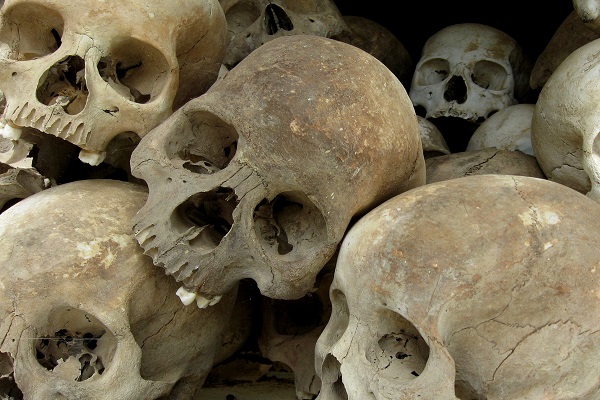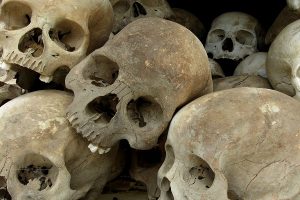
It’s 2021 — Who Am I? Why Am I Here?
- By Sam Field --
- 31 Dec 2020 --

Who are we and why are we here? There are many answers in the secular world. To business, we are workers or consumers and our purpose is to make stuff or buy it. To political parties we are voters and our purpose is to elect their candidates. To government we are taxpayers and our purpose is to support the government and its functions and fantasies. To websites we are traffic and our purpose is to clickthrough on ads. To Mother Nature we are a line of DNA and our purpose is to eat, sleep and reproduce.
It is only religion that regards us as more than workers, consumers, taxpayers and bodies. It is only religion that regards us as something different from the world of objects, energies, spaces and time.
Religions vary widely, and most are far from perfect, but in nearly every case mankind is seen as essentially spiritual, as flawed but worthy of redemption. Religion believes that right conduct is achievable, that ethics and morals matter, and that helping others is in our nature.
Who am I? Why am I here? These are the greatest mysteries facing mankind, the most difficult of all questions, and secular factions have brushed them aside. To Communism, mankind is “the masses” that must be controlled. To the psychiatrist, mankind is a body animated by DNA and stimulus-response mechanisms. And to many non-religious people, mankind just happened, so why bother fussing about it?
Men and women go about their lives at some point on the great spectrum from good to bad — they drink or don’t drink, love their children or put up with them, run up their credit cards or save their money, living their lives on full zoom, seeing only the alarm clock, the computer screen, the cup of coffee and the hours in the day they are living, ignoring all else, scoffing at the notion of their own connection to divinity, working at jobs they dislike, living for the weekend or the next vacation, or the next glass of beer.
Religion offers something else. A universe with a purpose, an architect, and a plan, scoffed at by those who build with what’s in front of them, eat what’s on their plate, work at the jobs they are given, and believe that death is the end of responsibility in some eternal blackness.
And most faiths require effort and responsibility for one’s fellows, most demand a structure to life, a purpose to strive for and an accounting of one’s deeds. Many religions see life on Earth as a test, an assessment of ethical and moral development, a spiritual proving ground.
Today – in the Christian year 2021, in the year 5780 on the Jewish calendar, in the year 1442 on the Muslim calendar – if you feel you are drifting or afloat in time, go to a mosque, synagogue, church or temple, renew a faith which has been set aside, or investigate a new one. For in these enduring scriptures and beliefs are the answers to “Who am I? Why am I here?”


















